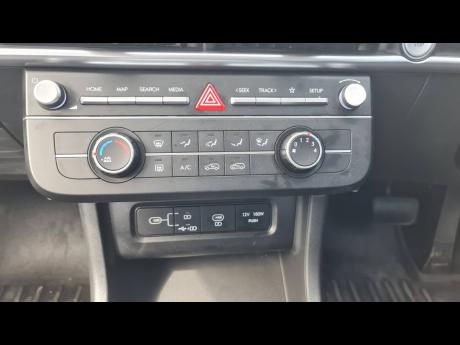The revised 2025 Hyundai Tucson Diesel
As an automotive enthusiast, I have had the pleasure of revisiting the Hyundai Tucson, specifically the 2025 diesel variant with its 2.0-litre turbo engine. Having previously tested the 2023 model, I was keen to experience the subtle yet significant upgrades Hyundai has implemented, particularly within the cabin. This latest iteration presents a compelling package, blending distinctive styling with a refined driving experience.
A History of Evolution
The Tucson’s journey began in 2004, aiming to carve a niche in the burgeoning compact SUV segment. Over the years, it has evolved through multiple generations, each bringing advancements in design, technology, and performance. The current fourth generation, with its bold styling, represents a significant departure from its predecessors, emphasising a more dynamic and futuristic aesthetic.
Exterior: Sculpted Sophistication
Unlike its larger sibling, the Santa Fe, the 2025 Tucson boasts a sculpted design with flowing curves and sharp character lines. Comparing it to the smaller Creta, the Tucson strikes a balance between compact agility and mid-size presence. The most striking feature remains the front-light assembly, with its multiple daytime running lights integrated seamlessly into the grille. This unique design element makes the Tucson instantly recognisable as I observed while navigating the bustling streets of New Kingston.
Interior: Tech-Forward Refinement
Stepping inside, the interior reveals a thoughtful blend of technology and comfort. Notably, many interior components share similarities with the Kia EV5, reflecting the shared manufacturing lineage. The most significant upgrade is the integrated 12.3-inch display, combining the instrument cluster and infotainment system into a seamless, high-resolution interface. Android Auto and Apple CarPlay works flawlessly, and the optional Bose premium audio system (available in the “Loaded” trim) delivers an immersive listening experience with its six speakers.
It now exclusively uses USB Type-C ports, which may be a bit inconvenient for those of us who still have USB Type-A ports. The wireless charging pad, while thoughtful, is positioned a little too high on the centre console, exposing it to direct sunlight. The intelligent use of the USB-C ports, allowing for both charging and device connectivity, is a definite plus.
The centre console has been reconfigured, a key change from the 2023 model, creating a more open and spacious feel. Interior fabric options include black, brown, and grey, with leather available in the “Plus” and “Loaded” trims. In my test unit, the driver’s seat featured electric adjustments with lumbar support, and the passenger seat was manually adjustable.
Cargo space is a generous 38.7 cubic feet behind the second row, and a retractable cargo cover adds a layer of security and organisation.
Driving Experience: Torque and Confident
The 2.0-litre turbo-diesel engine delivers a robust 183 horsepower and a substantial amount of torque, propelling the front wheels with immediacy. The acceleration is responsive, and the four driving modes – Eco, Normal, Sport, and My Drive – allow for customisation based on driving preferences.
The gear selector, now relocated to the steering wheel column (a feature shared with some Kia models), frees up space in the centre console. Also, the side lights, which activate when the steering wheel is turned, prove invaluable on winding roads.
The suspension strikes a commendable balance between comfort and control, absorbing road imperfections while maintaining a firm and planted feel. However, the turning radius could be improved.
The 2025 Hyundai Tucson Diesel represents a significant step forward, offering a refined interior, distinctive styling, and a robust driving experience. The subtle upgrades, particularly within the cabin, enhance its appeal, making it a strong contender in the competitive compact SUV market.
Price of tested model: $7.8m
Price Range/ Options: $6.5m (Entry level)
Engine: 2.0 Turbo Diesel
Horsepower: 183hp
Torque: 19.6kg-m at 4,500rpm
Fuel Tank: 55 litres
Fuel Consumption: 11.2 L/100 km (city), 6.6 L/100 km (highway)
FWD/AWD: FWD (Hyundai HTRAC)
Competition: Toyota RAV4, Honda CR-V, Nissan Rogue, Mazda CX-5, Subaru Forester, Kia Sportage, and Volkswagen Tiguan
Vehicle was provided courtesy of Magna Motors Dealership LTD, 630-1511 / 577-3607 www.hyundaijamaica.com.








